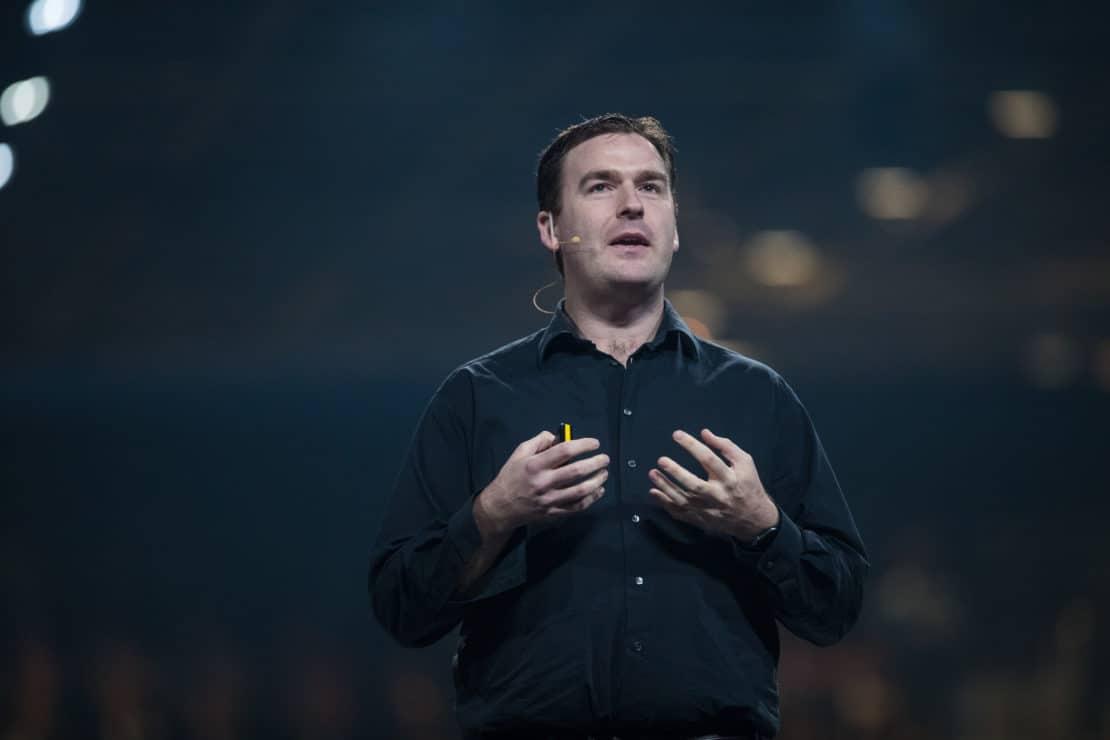6Oct2016
The era of brand books and catchy taglines is ending and giving way to a new reality where products succeed on quality and customer appeal, according to Scott Galloway and Alf Rehn, both of whom fielded questions from correspondent Peter Nyman on the MTV Live Stage.
According to Galloway, a keynote speaker at this year’s forum and a clinical professor of marketing at New York University’s Stern School of Business, the world is “moving from branders to builders, people who can make great suits, great cars, and great glassware.”
He noted that companies like Apple spend a minimal amount of funding on social media advertising, preferring to let the quality of their products speak for itself.
“If you buy a car and you love it, you will share that on social media,” says Galloway during the talk. “All of these platforms and all of these technologies enable one thing: to share things we love.”
According to Galloway, it is this phenomenon that is making conventional ideas about branding and advertising in the digital era obsolete. “This is word of mouth on steroids,” Galloway said. “If you have a better experience at this business forum, word will get out and you don’t need to advertise,” he said. “My friends trust me more than they trust an ad.”
Rehn, a professor of marketing and organization at Åbo Akademi University, held a similar view. According to Rehn, the “tacked-on, plaster-on branding” of yesteryear, where companies were supplied with colors, logos, and slogans, is “going to die” because of the increased reliance on customer word of mouth to advertise products in what is viewed as a more authentic manner.
“With Instagram, with Facebook, with Google, transparency will beat anything,” Rehn said. “If your brand isn’t true, that won’t work anymore.”
At the same time, both Galloway and Rehn voiced concern about the growing dominance of this same handful of influential companies.
“Twenty-five percent of all retail growth in the US is from one source: Amazon,” noted Galloway. “Fifty percent of all e-commerce is represented by one player: Amazon,” he said. “Apple, Facebook, Google, and Amazon are responsible for a disproportionate amount of the media and retail growth in the US,” Galloway added. “We have more and more profits aggregating to fewer and fewer players.”
Rehn called the trend “scary” and said that Amazon, Google, Facebook, and others are becoming the de facto controllers of the mediascape. “The socialist part of me wants to have a law controlling this, or a committee of some sort,” he said.


